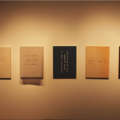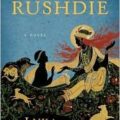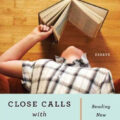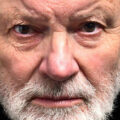Welcome to The Critical Flame
The Irish poet W.B. Yeats, in one of his more revolutionary moods, is purported to have exclaimed, “Education is not the filling of a pail, but the lighting of a fire.”
The quote is almost certainly apocryphal, but I believe this is one of a handful of common truisms that finds a certain justification in practice. Education is like a difficult bunch of kindling: it takes a lot of huffing and swearing to light, and it may fail to catch, but when it does light the fire burns bright and hot and long. Likewise, I once heard the eminent poet and translator David Ferry read (from a beautiful poem whose title escapes me), “the mind consumes what it needs.” This seemed to me the perfect image of a human mind: fierce, destructive, eminently extinguishable, and in need of constant replenishing. A fire on its own will only burn out.
Thus no education should be considered complete, ever—at no point in a person’s life should they set their minds to rest, believing they know all they will ever need to know, that they understand all the rules. It’s equal parts hubris and foolishness (those equally ignoble traits) to believe that a life is ever “done,” like a meatloaf or a pot roast. Education is as much a part of human nature as the opposable thumb: from Socrates and Aristotle, to Emerson and David Foster Wallace, we are creatures who have always desired to know how and why. That curiosity is a great virtue. Coupled with our command of language, it has cured diseases, led peoples to ask of their freedom, pushed them to ask of the limits of their sovereigns, and spurred on works of incomparable beauty.
A life of constant education is a life lived well, and the heart of our continued education is a public discourse that is free from small-minded influence, sanitation for the sake of weak wills, and cowardly censorship.
With that in mind, we at The Critical Flame seek to clear a space in this wilderness that is the internet for articulate discussion and learned debate. We will make our convictions vulnerable to scrutiny, put aside our petty egotism, and engage with literature honestly, openly. Education is not only the facts and opinions conveyed, but also the manner in which we engage with the work at hand. We strive to be accurate, well-researched, and insightful, and to ensure that our reviews and criticism are tempered by mutual respect and, always, an unyielding respect for the work itself.
It is a project that seems akin to humanism: not that Old Boys’ club, that hard-line, canonical humanism that has been quaintly outmoded for decades. Rather, a modern humanism—one more suited to our newly interconnected world, in which the understanding of shifts in values and differences between cultures does not prevent us from continuing to seek out what is common among all people, what is best in their work. At times we will fail, at times we will miss things that seem obvious to certain readers. But what can be written about literature, history, or criticism that is not, inevitably, limited? That we are incomplete in our perceptions should not end of the discussion. The cultural critic Edward Said writes, in Humanism and Democratic Criticism,
“Humanism is not about withdrawal and exclusion. Quite the reverse: its purpose is to make things more available to critical scrutiny as the product of human labor, human energies for emancipation and enlightenment, and, just as importantly, human misreadings and misinterpretations of the collective past and present.”
It takes an astounding amount of courage to admit the inevitable failures of one’s own discipline, and Said, who was constantly at the center of so much controversy, probably knew these failures better than most. But this passage sums up better than any I’ve encountered exactly what it means to label a person or project as humanist in the twenty-first century. It encompasses, to my mind, the left and the right, the traditional and the experimental, allows for myriad readings, and it even has one missing element: to judge, by some hoary standard, whether a work is beautiful. The aesthetic, of course, was never Said’s concern, though it is certainly one of ours.
Verse, novels, biographies, history, criticism: these genres, and others, will be the objects of our critical attention. It was an image of fire that inspired this journal’s title, of fire as the human mind, a fire to test the products of human labor. I cannot predict what the outcome of all our work will be, and I hope never to find myself editing with some narrow agenda.
The purpose is not whatever small victories each essay achieves, but the work that is done collectively. We may be fools to be taking on such an apparently enormous task. But the discussion has to go on, even in difficult times such as these, in spite of the seismic changes to media and our society; we must never lose sight of our humanity, or waylay the most admirable aspects of our nature—education, that miracle of fire, must continue.
About Daniel Pritchard
Daniel E. Pritchard is the founding editor of The Critical Flame.





